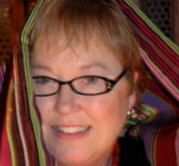Diversity and inclusion: Challenge your perceptions

Imagine it’s 10pm. You hear a noise outside and open the door to find your house surrounded by armed militia. You are dragged forcefully from your home, away from your wife and young children. Thrown into a dark cell and tortured non-stop for three weeks before you are released with a warning to cease doing your job or face death.
Because you are educated. Because you live in Ethiopia. Because the reigning party fears your intellect.
You are the regional administrator supporting the needs of principals from 60 schools for which you are responsible. If you continue doing your job, you face certain imprisonment, torture and death. The reigning party doesn’t trust you — you are surly “conspiring” with other educated people.
Stay and lose your job. Stay and be murdered. Either way your family is in jeopardy. There is no choice if you want your family to live. You escape across the border to seek asylum with just the clothes on your back. You must leave your family behind. All you can do is pray they will be safe.
Fast forward after three years in a Kenyan refugee camp without contact from your family. You finally arrive in the United States and discover you missed your family’s arrival at the refugee camp just weeks after your departure.
The only job open to you in Seattle is cleaning hotel rooms. You finally make contact with your family who spend two more years in the Kenya refugee camp but you are unable to help them. The immigration system takes over.
Fast forward three years later….
Tsegaye still pushes wheelchairs at SeaTac. His job doesn’t afford the extra money to bring his wife and four children to Seattle – yet. Despite all he has been through, Tsegaye is hopeful and positive about the future. He knows one day he will reunite with his family. And one day, he will use his education and administrative gifts in his newly adopted country. He is especially proud to be an American citizen.
Look around you. How many educated, skilled refugees in menial jobs are not able to use their talents. Often it is only their foreign-accented English that causes their skills and credentials to be misjudged.
The next time you meet a foreigner care-giving a family member at a nursing home or pushing a wheelchair at the airport or a hotel employee cleaning your room who speaks English with an accent, what will you think of them? They might just be an engineer or doctor, waiting to be reunited with their loved ones.
QUESTIONS TO CONSIDER
- Resource 1 Credit Union in Texas offers “Citizenship Loans” in an innovative program to support immigrant members. How might you adapt your products to address non-citizen members’ needs?
- Diversity and inclusion are the latest buzzwords. How are we sensitizing employees to the biases we might inadvertently have as we deal with members of different cultures?
- How might our perceptions of members with limited English be creating prejudice as we examine their loan-worthiness?





